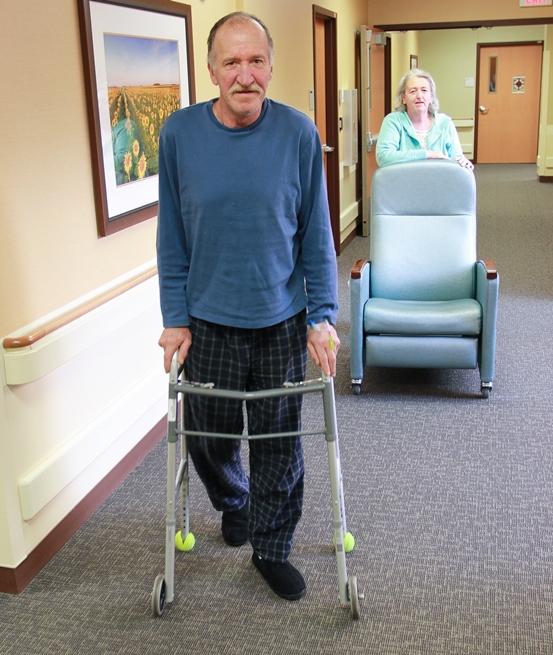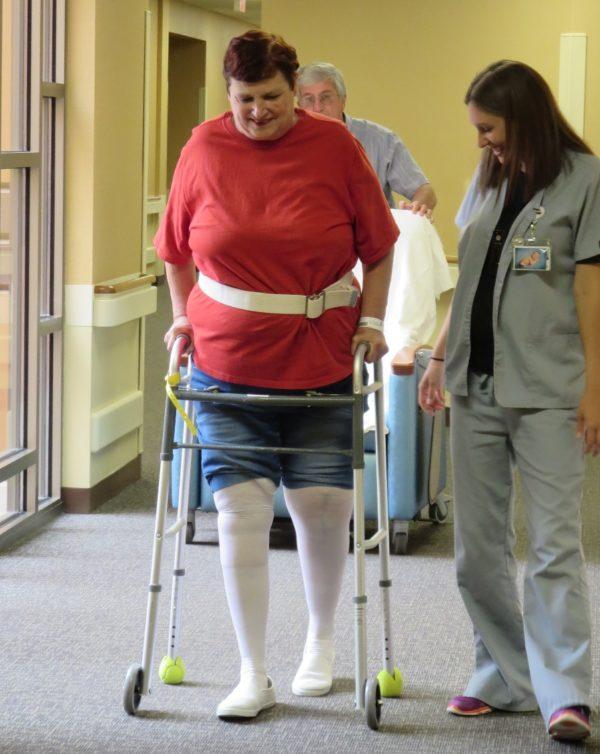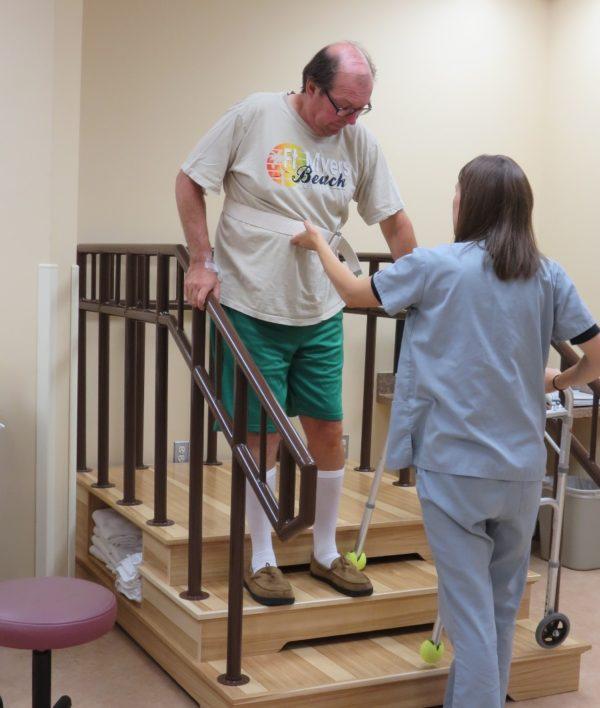Joint replacement surgery can be just as scary for you as it can be for your spouse.

Joint replacement surgery can be just as scary for you as it can be for your spouse.
A lot of preparation is needed before undergoing the actual surgery. Heidi Solem, Altru’s Joint Replacement Center Coordinator, works firsthand with recovering patients and spouses. Solem says that the surgery is life-changing because hip or knee pain can be very limiting. “It impacts everyday life,” Solem said. “If you can’t do something you’ve always done with your spouse it’s very frustrating.”
Here are eight tips for getting through the surgery and getting back to enjoying everyday life with your spouse:
Assign a coach who will encourage the patient throughout the entire process.
Whether the coach is you or another family member, Solem says, it’s really important to assign one person who will not only keep spirits lifted, but will be able to take on any physical demands to help the patient. “If your mom, grandma or spouse is having hip or knee surgery, it doesn’t just affect the patient, it affects their family as well,” Solem said. “For example, the patient may not be able to drive for several weeks, and may even need assistance to walk up and down stairs.”
Participate in the Joint Replacement Center pre-op class.
Once a coach is assigned, he or she should participate in Altru’s pre-op class to learn more about the surgery along with the patient. “You’ll learn about exercising, how to prepare your home, what’s going to happen at the hospital and tips for having the most successful surgery,” Solem said. “We cover everything in that class so it’s really important for the patient, spouse and/or coach to attend.”

Prepare your home accordingly.
“There’s adaptive equipment available for furniture that makes moving around easier,” Solem said. “It’s also important to stock up on the essentials like food and toiletries.” Consider moving items to lower shelves in the kitchen and purchasing bendable straws so your spouse can drink while lying down. Most of the rehab will happen in your home so creating an atmosphere that allows for easy movement is important. Remove rugs, cords and any obstructions that could cause an accident out of the main living area and consider installing handrails as a safety precaution.
Recognize that physical therapy happens the moment you wake up from surgery.
“Once surgery is complete, your spouse will work with a physical therapist or nurse, to get them up and into a chair,” Solem said. “They will take those first couple of steps just hours after the surgery.” This is also another opportunity for the coach to be present and provide the patient with encouragement because this can be a stressful part of the process.
Once home, it’s important for you to encourage your spouse to complete the in-home therapy.
Your spouse’s success will depend on how diligent they are about doing those exercises so it’s important to encourage them and remind them of their goals. “In- home physical therapy is one of the most important things to do after a replacement,” Solem said. “The exercises need to be done three times a day.”
“In trying to be an encouragement to your spouse, remind them how important post-operation therapy is to their success,” shared Dr. Darin Leetun, an orthopedic surgeon at Altru Advanced Orthopedics. “I always tell individuals that their results are 50 percent dependent on the surgery itself, and 50 percent reliant on their post-operation therapy and exercises.”
Don’t miss your outpatient physical therapy sessions.
It’s possible that your spouse’s physician will have them participate in outpatient therapy to aide in their recovery. Outpatient therapy is an opportunity for the physical therapist to assess the patient’s progress. “Sometimes you needs support too,” Solem said. Support can come from the physical therapist who can keep the patient accountable when you feel uncomfortable doing so. “There are three outpatient sessions per week for approximately six to eight weeks, depending on the patient’s progress,” Solem said.
Be patient.
“Many people are able to get back to where they want to be when they follow the program,” Solem said. “The thing is: Some people think they should be fixed right away, but it’s a long process.” Solem also says it takes approximately two to three months of consistency and that little gains are important and need to be celebrated.
Joint replacement surgery can be difficult for you and your spouse, but it’s important to focus on the end goal. It can be a life-changing procedure that allows you to return to the things you love, whether that means traveling, gardening, hiking or just a daily walk. To learn more about joint replacement surgery and how to improve your way of life, visit altru.org/jrc to schedule a visit at Altru Advanced Orthopedics, or call 701.732.7700.







